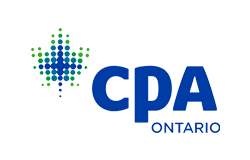JC Professional Corporation Blog
IT consultants and Independent Consultants working on a contract basis with a corporate business structure should be aware of the personal service business (PSB) rules.
If it was not for the corporation, you would reasonably be considered an employee of the company to which you provide services to. In other words, you are an incorporated employee. This change could have significant implications for your tax obligations. You could lose many of the tax benefits currently available to you.
Impact of Personal Service Business Rules:
The small business deduction is disallowed. All expenses except for salary and benefits would be disallowed. The reassessment would lead to tax penalties. PSB are subjected hefty tax rates.
Canada Revenue Agency uses the following factors in assessing if your corporation is a Personal Service Business (PSB).
Control:
The payer exercises control over how and when you perform your work, and you have to regularly report to your supervisor. If so, this indicates that your corporation will be considered a PSB. If you are financially dependent on your employer this indicates a PSB. This means that your only customer is your current employer, as opposed to having multiple numbers of customers.
Tools & Equipment:
The payer provides you with all the tools & equipment to do your job; this indicates that you are a PSB. Tools & equipment include your computer, software, etc.
Subcontracting Work:
The payer does not allow you to hire subcontractors to complete a project; this indicates that you are a PSB.
Financial Risk:
If the worker has no financial risk, this indicates that your corporation is a PSB. Examples of no financial risk are when the worker is not responsible for any operating expenses, and the worker is hired for an ongoing relationship and not a specific job.
Responsibility for investment and management:
If the worker has no responsibility for investment and management indicates the corporation is a PSB. Examples are a worker that has no investment in their business and is not free to make business decisions impacting their profit and loss.
Opportunity for Profit
If the worker has no opportunity for profit, it indicates that your corporation is a PSB. Example: The worker is not paid on a milestone basis or upon successful completion of the project.
Please read my article on suggestions on dealing with the PSB risk for IT contractors and Independent Consultants.
Advantages:
Separate Legal Entity/ Limited Liability:
Your corporation is a separate legal entity and as such, creditors or legal actions are against the corporation and its assets, not your personal assets. The shareholders of a corporation have a limited liability. Please note shareholders can be legally liable for the corporation's GST/HST and payroll taxes.
Tax Advantages:
If you don't need all the corporation earnings for personal income, you can leave them in the corporation, deferring personal taxes on withdrawals and possibly enjoying a 15.0% preferred tax rate on the first $500,000 of profit in a CCPC.
Your corporation has tax flexibility from which you may personally benefit. If you sell shares in your Canadian-controlled private corporation (CCPC) capital gains will be tax – free up to $813,600.
Disadvantages:
The administration costs are more expensive with a corporation than with a partnership or a sole proprietorship. Administration costs include incorporation costs, annual financial statements and annual corporate income tax return.
Losses in an incorporated business can't be personally claimed.

